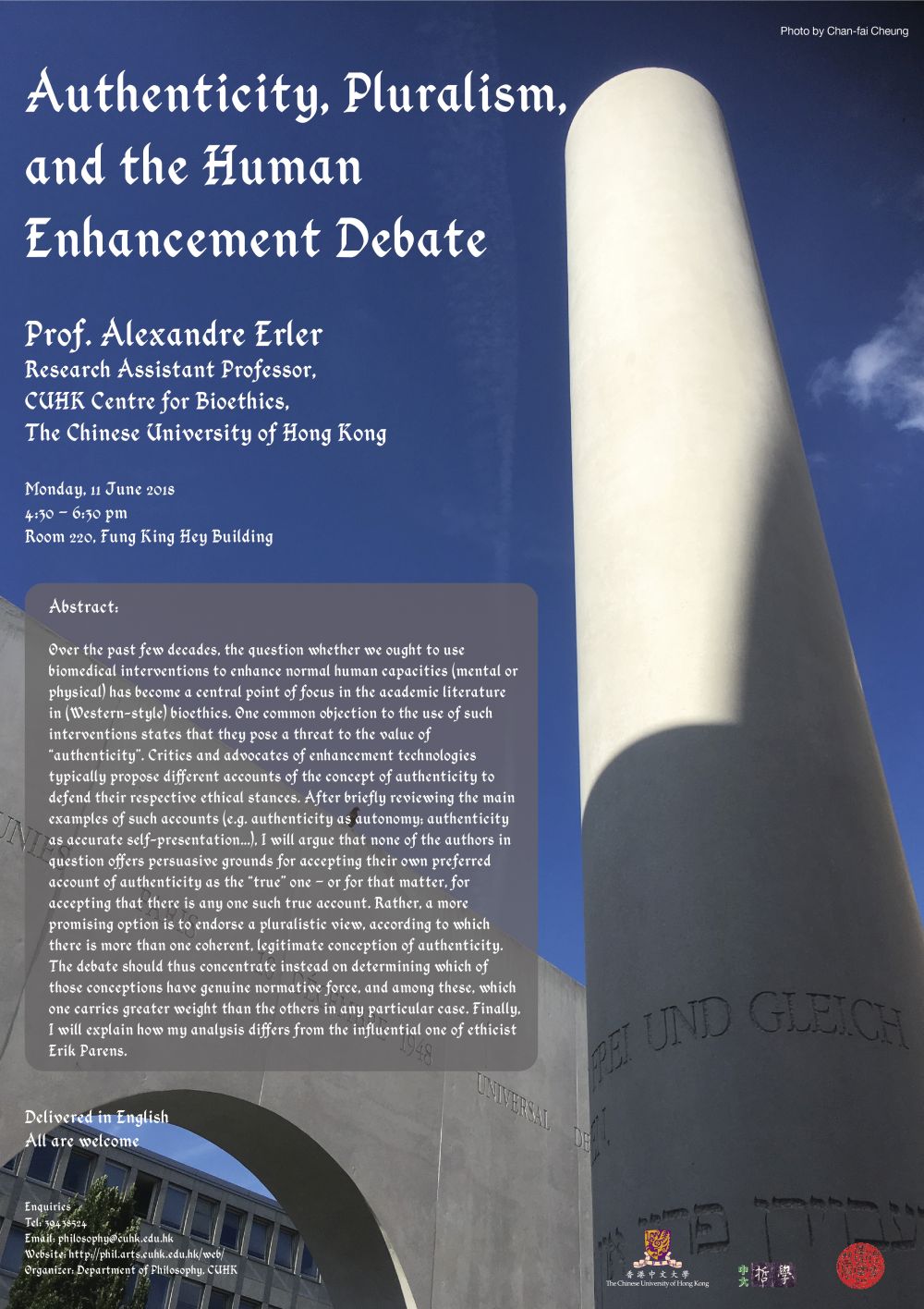Authenticity, Pluralism, and the Human Enhancement Debate

Prof. Alexandre Erler, Research Assistant Professor, CUHK Centre for Bioethics, The Chinese University of Hong Kong |
|
4:30 – 6:30 pm |
|
香港中文大学冯景禧楼220室 |
摘要:
Over the past few decades, the question whether we ought to use biomedical interventions to enhance normal human capacities (mental or physical) has become a central point of focus in the academic literature in (Western-style) bioethics. One common objection to the use of such interventions states that they pose a threat to the value of “authenticity”. Critics and advocates of enhancement technologies typically propose different accounts of the concept of authenticity to defend their respective ethical stances. After briefly reviewing the main examples of such accounts (e.g. authenticity as autonomy; authenticity as accurate self-presentation…), I will argue that none of the authors in question offers persuasive grounds for accepting their own preferred account of authenticity as the “true” one – or for that matter, for accepting that there is any one such true account. Rather, a more promising option is to endorse a pluralistic view, according to which there is more than one coherent, legitimate conception of authenticity. The debate should thus concentrate instead on determining which of those conceptions have genuine normative force, and among these, which one carries greater weight than the others in any particular case. Finally, I will explain how my analysis differs from the influential one of ethicist Erik Parens.




